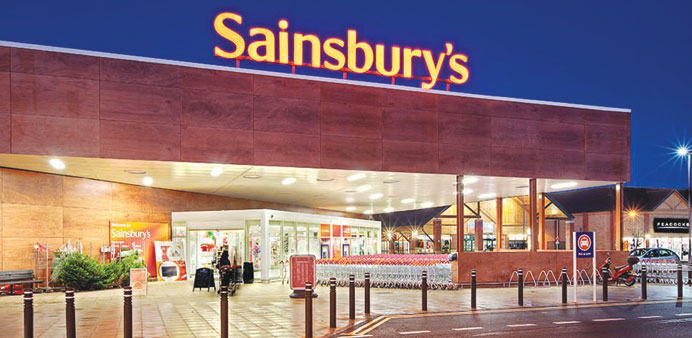Reuters
European shares eked out small gains in thin, choppy trade yesterday, helping one key eurozone index of blue chips record its biggest monthly rise since February.
Most European bourses closed off their morning highs, however, after eurozone inflation data slightly cooled market speculation about fresh monetary stimulus by the European Central bank, a key driver behind the market bounce over the past three weeks.
Eurozone inflation dropped as expected to a fresh five-year low in August, data showed yesterday, but it was not likely to force the ECB into immediate policy intervention next week.
Dovish comments by ECB President Mario Draghi last week had fuelled market bets that the central bank was preparing to pump more into the system, possibly via purchases of government or corporate bonds, a measure known as quantitative easing (QE).
“I think what people realise is that for the ECB to engage in public-sector QE..., the ECB has to see the whites of the eyes of deflation,” Wouter Sturkenboom, investment strategist at Russell Investments, said.
“As the numbers come through, those conditions are not being met so...they have to reassess their case.”
Sturkenboom still expected the ECB to be ready to act if needed but argued that the central bank would first wait to see the impact of its new long-term loan programme, which is due to start in September and aims to give banks an incentive to lend more to the real economy.
The FTSEurofirst 300 index of top European shares closed 0.3% higher at 1,373.82 points, having traded as high as 1,376.58 points before the eurozone inflation data.
The eurozone blue-chip Euro STOXX 50 also rose 0.3%, helping it to a third straight weekly rise and leaving it up 1.8% for August, its biggest monthly gain since February.
Price action was volatile and volume on the index was 25% lower than its average for the past three months.
Speculation about the ECB’s next move had temporarily diverted the market’s focus from events in eastern Ukraine, where at least 2,593 people have been killed in fighting between government forces and pro-Russian rebels since mid-April, according to a senior UN human rights official.
Yet the Ukrainian crisis remained a major headwind for European equities. Ukraine urged yesterday for full membership in NATO, its strongest plea yet for Western military help after accusing Russia of sending in armoured columns that have driven back its forces on behalf of separatist fighters.
Shares in Britain’s biggest retailer Tesco dropped 6.6% after it cut its profit forecast for the third time in three years and slashed its interim dividend by 75%.
The warning hit the shares of other UK supermarket chains, with Sainsbury down 4.3% and Morrisons down 5%.
European airline shares retreated after a small eruption occurred north of Iceland’s Bardarbunga volcano. That prompted the Icelandic Met to raise the warning code for aviation to red, the highest level, for a few hours before returning it to orange based on an assessment that no threat to aircraft existed.
In 2010, an ash cloud from Iceland’s Eyjafjallajokull volcano closed much of Europe’s air space for six days.
Shares in Air France were down 1.8%, with easyJet down 1.3%.

